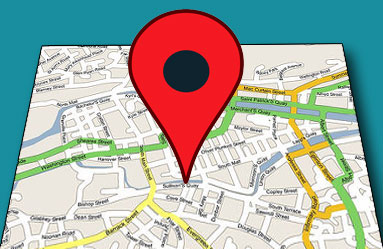GPS technologies are constantly improving and expanding. When first launched, GPS provided accuracy within several hundred feet. Then, when Selective Availability ended, accuracy skyrocketed literally overnight to a few meters. Now, a research team at the Cockrel School of Engineering at the University of Texas at Austin has found a way to increase that accuracy to a few centimeters without increasing the cost. The catch is that this new technology was funded by Samsung and therefore is designed specifically for smartphones.
I know what you’re probably thinking. Centimeter-accurate devices are already available right now. IN fact, centimeter-accurate positioning devices are commonly used in several different fields including geology, mapping and surveying. However, these survey-grade antennas are a too large to use with a mobile device, and the antennas and equipment is pretty expensive. The researchers wanted to create a super accurate system that was affordable so that everyone could use it.
I’m not an expert on the hardware that goes into GPS and smartphones, so I’m not going to try and explain to you exactly how it works. But, basically what it sounds like is that the device uses the sensors already included in most smartphones alongside the existing GPS technology in order to decrease the range from an area the size of a car to the area the size of a nickel. You can check out the article in GPS World or the ARS Technica article to get a better idea of the technical side of it.
What’s of more interest to me is the ramifications of a technology like this. The research team listed off things that they believe the technology to be useful for—mostly gaming, because they are college students, as well as virtual reality. However, the first thing that comes to my mind is the use of drones and other similar things. I wouldn’t think that the FAA would be able to argue if you could land a drone within centimeters of a target without any difficulty. Self-driving cars suddenly don’t sound quite as scary—the possibilities are endless, especially if the technology can be replicated outside of the use of a smartphone (which I am sure is possible).
Right now, this is still in the research phase and is not commercially available, although the Eureka Alert! article stated that the professor and his students have created a new startup called Radiosense and there are plans to build a clip-on accessory for smartphones to leverage this centimeter-accurate positioning technology.

